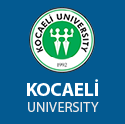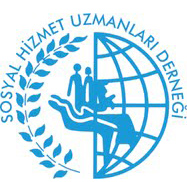DEPARTMENT OF SOCIAL WORK
Department of Social Work was established in 2009-2010 school year at Faculty of Health Sciences and undergraduate education in social work started in 2010–2011 school year.
We aim to equip students with internationally accredited qualifications (in terms of knowledge, skills as well as values) throughout the four years of education and training in social work. Thus, our graduates are expected to pursue their professional practice on the basis of human rights and social justice and within the framework of social work ethics.
Students who prefer to enroll to our undergraduate programme will have the opportunity to have a social work education along international standards with qualified, expert and dynamic teaching staff. Our undergraduate programme has been designed in conformity with the guidelines and principles of Council on Social Work Education. The department is a member of European Association of Schools of Social Work (http://www.eassw.org/list-of-member-schools.html#Turkey).
Undergraduate programme has been structured in a way to enhance students to accumulate detailed knowledge and skills within specific areas of social work in which they aim to pursue their professional career. The curriculum involves compulsory as well as elective courses (constituting one-fourth of total credits) to facilitate knowledge and skill building in preferred areas of social work. The teaching approach mainly prioritizes collaborative learning techniques as well as active student participation.
In order to strengthen the relation between theory and practice, undergraduate education also involves contributions from social workers working in different institutions such as Ministry of Interior, Ministry of Justice, Ministry of Health and Ministry of Family and Social Policies as well as professionals from other related disciplines mostly in the form of guest lectures as well as departmental seminars. Such an approach enables students to both monitor recent changes and developments and oversee interdisciplinary work and different practices.
In international terms, the students have the opportunity to participate in education in social work schools as well as explore the social work practices in Europe and other parts of the world thanks to the exchange agreements signed with social work programs and organizations within the framework of Erasmus program and other specific exchange programs.
We welcome those students who feel sensitive to individual as well as social problems believe in social justice and equality, desire to work with and help disadvantaged individuals, groups and communities.
Proposed Global Definition of the Social Work Profession*
“Social work is a practice-based profession and an academic discipline that promotes social change and development, social cohesion, and the empowerment and liberation of people. Principles of social justice, human rights, collective responsibility and respect for diversities are central to social work. Underpinned by theories of social work, social sciences, humanities and indigenous knowledge, social work engages people and structures to address life challenges and enhance wellbeing.
General Definition of Social Work Profession*
The social work profession promotes social change, problem solving in human relationships and the empowerment and liberation of individuals, families, groups and communities to enhance well-being. Utilising theories of human behaviour and social systems, social work intervenes at the points where people interact with their environments. Principles of human rights and social justice are fundamental to social work.
General Definition of Social Worker*
Social worker is the member of social work profession who performs interventions with the help of methods and techniques peculiar to social work by utilizing theories of human behavior and social systems towards enhancing problem solving and coping capacities of the individual, family and society and generating, remedying, protecting and developing the pscho-social functionality; while providing planning and application for the aim of meeting people’s needs via social policy and programs.
Commentary*
The commentary serves to unpack the core concepts used in the definition and is detailed in relation to the social work profession’s core mandates, principles, knowledge and practice.
Core Mandates*
The social work profession’s core mandates include promoting social change, social development, social cohesion, and the empowerment and liberation of people.
Social work is a practice profession and an academic discipline that recognizes that interconnected historical, socio-economic, cultural, spatial, political and personal factors serve as opportunities and/or barriers to human wellbeing and development. Structural barriers contribute to the perpetuation of inequalities, discrimination, exploitation and oppression. The development of critical consciousness through reflecting on structural sources of oppression and/or privilege, on the basis of criteria such as race, class, language, religion, gender, disability, culture and sexual orientation, and developing action strategies towards addressing structural and personal barriers are central to emancipatory practice where the goals are the empowerment and liberation of people. In solidarity with those who are disadvantaged, the profession strives to alleviate poverty, liberate the vulnerable and oppressed, and promote social inclusion and social cohesion.
The social change mandate is based on the premise that social work intervention takes place when the current situation, be this at the level of the person, family, small group, community or society, is deemed to be in need of change and development. It is driven by the need to challenge and change those structural conditions that contribute to marginalization, social exclusion and oppression. Social change initiatives recognize the place of human agency in advancing human rights and economic, environmental, and social justice. The profession is equally committed to the maintenance of social stability, insofar as such stability is not used to marginalize, exclude or oppress any particular group of persons.
Social development is conceptualized to mean strategies for intervention, desired end states and a policy framework, the latter in addition to the more popular residual and the institutional frameworks. It is based on holistic biopsychosocial, spiritual assessments and interventions that transcend the micro-macro divide, incorporating multiple system levels and inter-sectorial and inter-professional collaboration, aimed at sustainable development. It prioritizes socio-structural and economic development, and does not subscribe to conventional wisdom that economic growth is a prerequisite for social development.
Employment Opportunities in Turkey
Upon completion of 4 years undergraduate education, social work students graduate with the professional title of “social worker” and in addition to the Ministry of Family and Social Policies, they would be employed in several fields and organizations as follows;
- units of the Ministry of Health,
- units of the Ministry of National Education,
- university hospitals and private hospitals,
- medico-social centers of the universities,
- General Directorate of Credit and Dormitories Agency,
- units under the Ministry of Justice,
- units of the Ministry of Labour and Social Security,
- local offices of Social Assistance and Solidarity Foundation,
- municipalities,
- non-governmental organizations providing social services,
- social services provided by the private sector (kindergartens, private rehabilitation centers, private nursing homes, elderly care centers etc.)
*References
International Federation of Social Workers Homepage, (http://ifsw.org)
Hacettepe University, School of Social Work Homepage, (http://www.shy.hacettepe.edu.tr)




